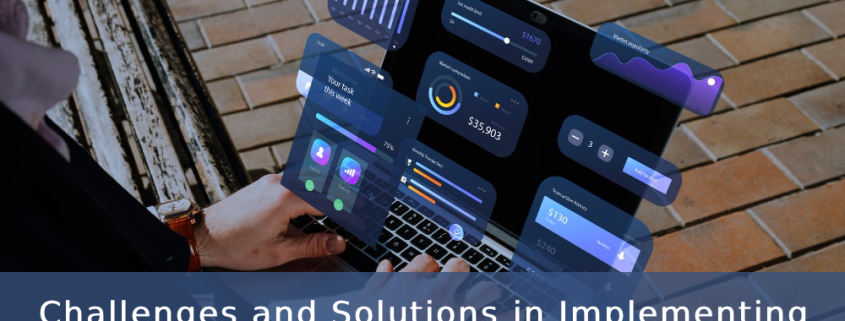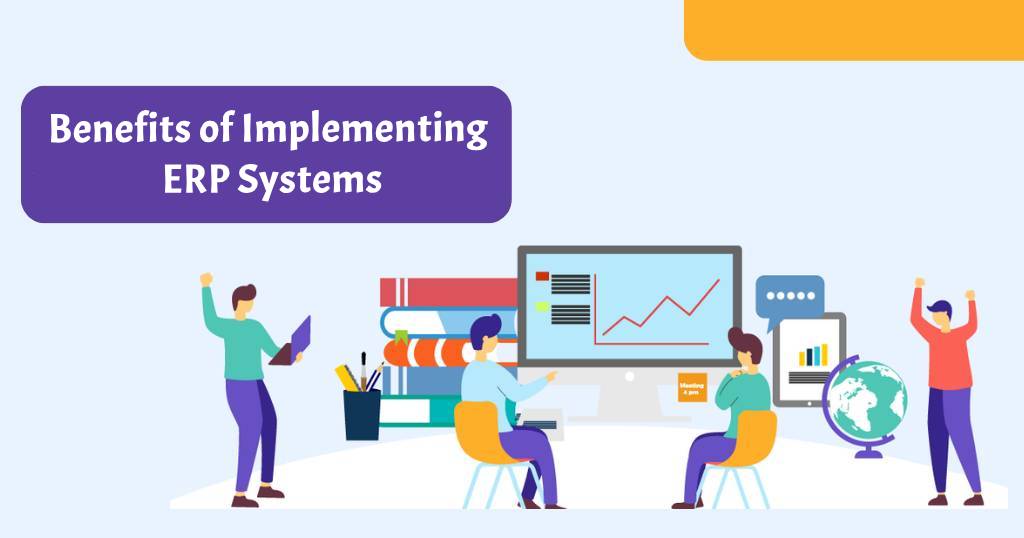Challenges and Solutions in Implementing Enterprise Resource Planning Systems
In today’s fast-paced digital era, businesses of all sizes — from manufacturing and retail to healthcare, finance, and education — rely on Enterprise Resource Planning Systems to integrate and manage their core operations. ERP systems unify processes such as finance, supply chain, human resources, customer relationship management, and inventory management into a single digital ecosystem.
However, implementing an ERP solution is not without challenges. From data migration to user adoption, companies often face several obstacles before achieving success. This article explores the major challenges and solutions in implementing Enterprise Resource Planning Systems, along with how Havteq can help businesses overcome them effectively.
Key Challenges in ERP Implementation
While Enterprise Resource Planning Systems offer great advantages, the implementation process can present difficulties. Below are some of the most common challenges businesses encounter:
a. Resistance to Change
Employees often hesitate to adapt to new systems, especially if they’ve been using manual processes for years. This resistance can delay adoption and limit ERP efficiency.
b. Data Migration Complexity
Transferring data from legacy systems to a new ERP can be complicated. Duplicate or inconsistent records often cause delays and integration issues.
c. Integration with Existing Systems
Many businesses use multiple applications for accounting, inventory, and CRM. Ensuring these systems communicate effectively with the ERP requires proper configuration and technical expertise.
d. High Initial Investment
The upfront cost of ERP software, customization, and training can seem high. However, when implemented correctly, the long-term ROI far outweighs the initial expense.
e. Inadequate Training
Without proper training, even the most powerful ERP system can fail. Staff must understand how to use new tools to fully leverage automation and efficiency.
Practical Solutions for Smooth ERP Implementation
To overcome these challenges, organizations must approach ERP deployment strategically. Below are effective solutions for ensuring successful implementation:
a. Define Clear Objectives
Before choosing an ERP system, businesses must define what they want to achieve — whether it’s cost reduction, real-time analytics, or improved supply chain visibility.
b. Choose a Scalable ERP Partner
Every business is different. Selecting a flexible ERP solution provider like Havteq ensures that your system is customized to fit your specific business goals and can scale with future growth.
c. Focus on Change Management
Successful ERP implementation requires internal alignment. Businesses should engage employees, offer training, and communicate how ERP will simplify their daily operations.
d. Prepare and Cleanse Data
Data should be validated, standardized, and de-duplicated before migration. Clean data ensures accuracy and smooth functioning after implementation.
e. Continuous Support and Optimization
ERP deployment doesn’t end with installation. Partnering with experts like Havteq ensures continuous updates, support, and system optimization to maximize ROI.
Benefits of Implementing Enterprise Resource Planning Systems
Once successfully implemented, Enterprise Resource Planning Systems deliver measurable benefits across the organization:
- Centralized Data Access: All business functions are connected under a single system.
- Increased Efficiency: Automates repetitive tasks, reducing manual work and human error.
- Better Decision-Making: Real-time analytics and dashboards empower leaders with insights.
- Enhanced Collaboration: Departments can share data seamlessly for faster coordination.
- Scalability and Flexibility: Cloud ERP solutions adapt as the business grows.
With Havteq’s ERP solutions, companies can experience faster implementation, reliable performance, and customizable modules that align with their specific operational needs.
Emerging Trends in ERP Systems
The future of Enterprise Resource Planning Systems is being shaped by innovative technologies. Businesses adopting modern ERP solutions can leverage:
- AI & Machine Learning: For predictive insights and intelligent automation.
- Cloud ERP Platforms: For real-time access and cost efficiency.
- IoT Integration: Enhances supply chain and inventory visibility.
- Mobile ERP Applications: Enables remote access for on-the-go decision-making.
By integrating these advancements, companies can improve agility and gain a competitive advantage in their respective industries.
Frequently Asked Questions (FAQs)
1. What are Enterprise Resource Planning Systems?
ERP systems are integrated software solutions that connect business functions like finance, HR, inventory, and supply chain management into a unified platform.
2. What are the biggest challenges in ERP implementation?
Common challenges include data migration, high initial cost, user resistance, and poor training.
3. How can businesses ensure successful ERP implementation?
Define goals, select the right ERP partner like Havteq, clean data before migration, and train employees effectively.
4. Why should businesses choose cloud-based ERP?
Cloud ERP offers scalability, remote access, real-time updates, and lower IT maintenance costs.
5. What benefits does ERP bring to business operations?
ERP improves efficiency, transparency, collaboration, and decision-making across all departments.
Conclusion
Implementing Enterprise Resource Planning Systems is a transformative journey that can redefine how a business operates. While challenges like data migration, change management, and cost may arise, the right approach — combined with expert guidance — ensures a successful transition.
Havteq provides the Best Enterprise Resource Planning Systems for your business, offering scalable, secure, and efficient ERP solutions that simplify business processes, improve productivity, and drive sustainable growth.
In the modern business world, the key to success lies in choosing the right technology partner — one that not only delivers software but also empowers your organization to innovate and evolve.









